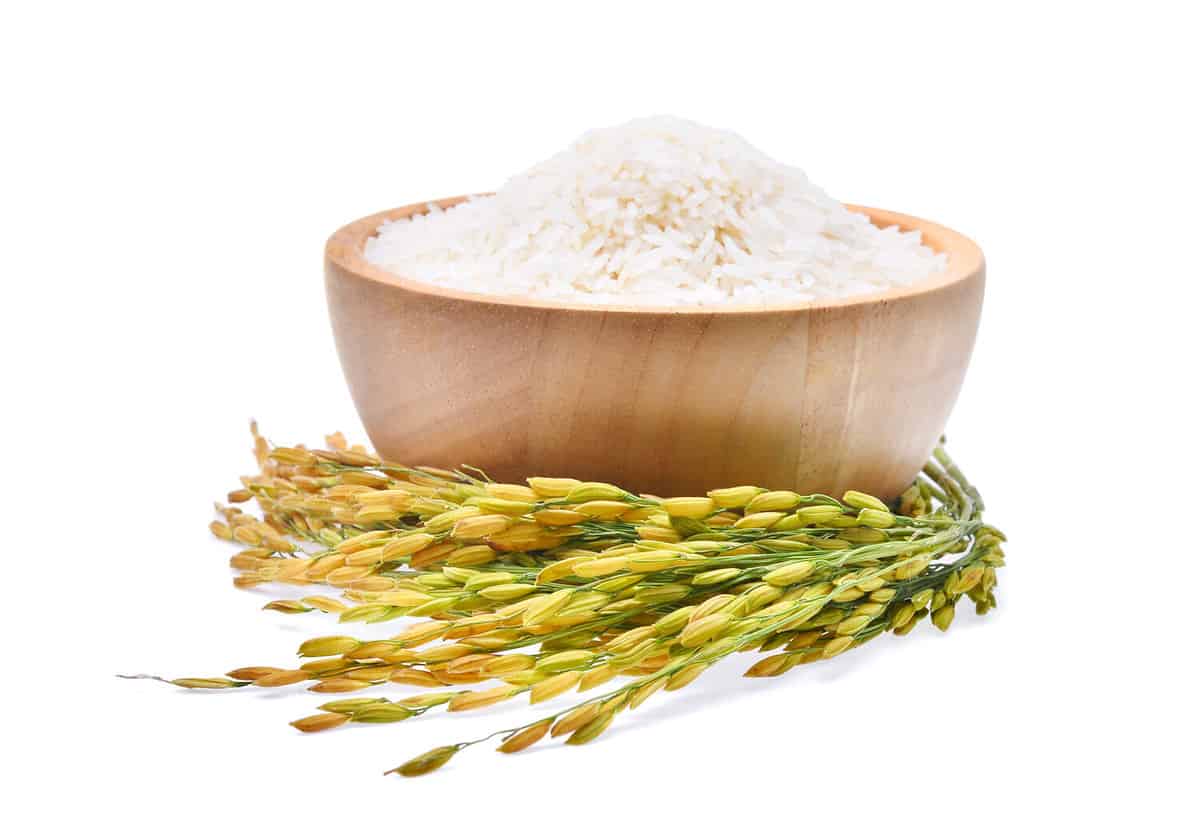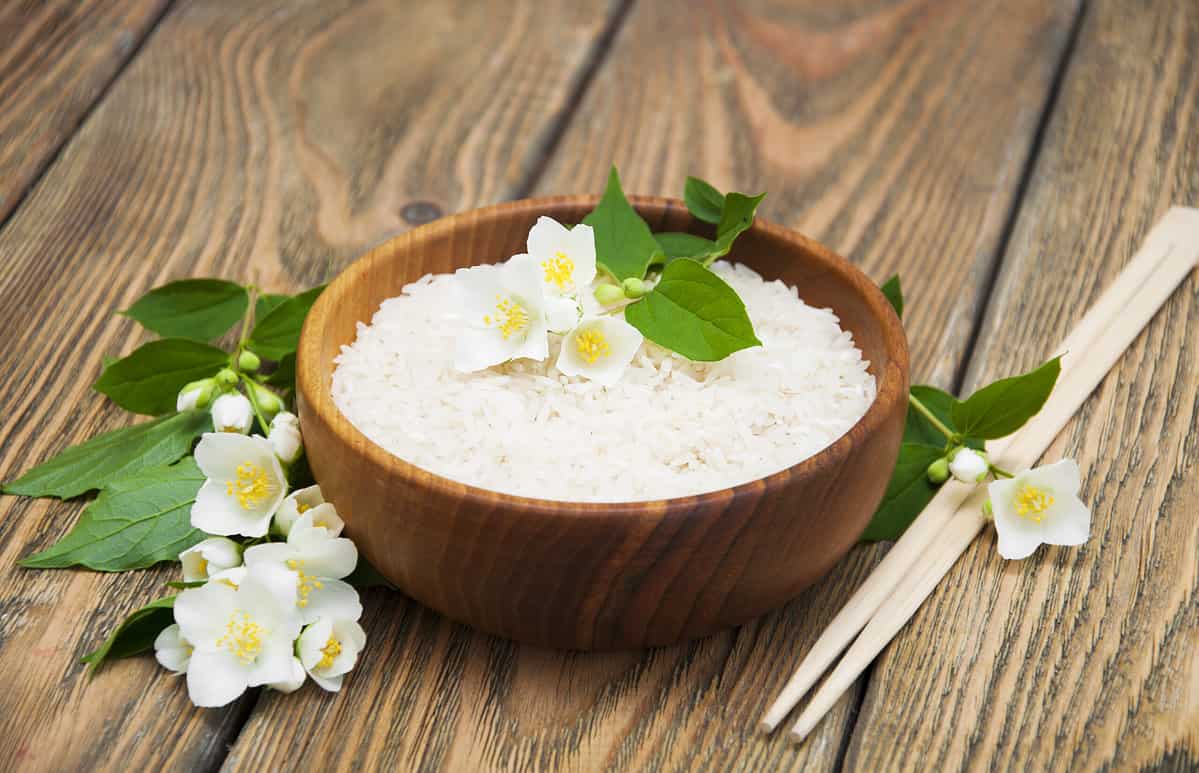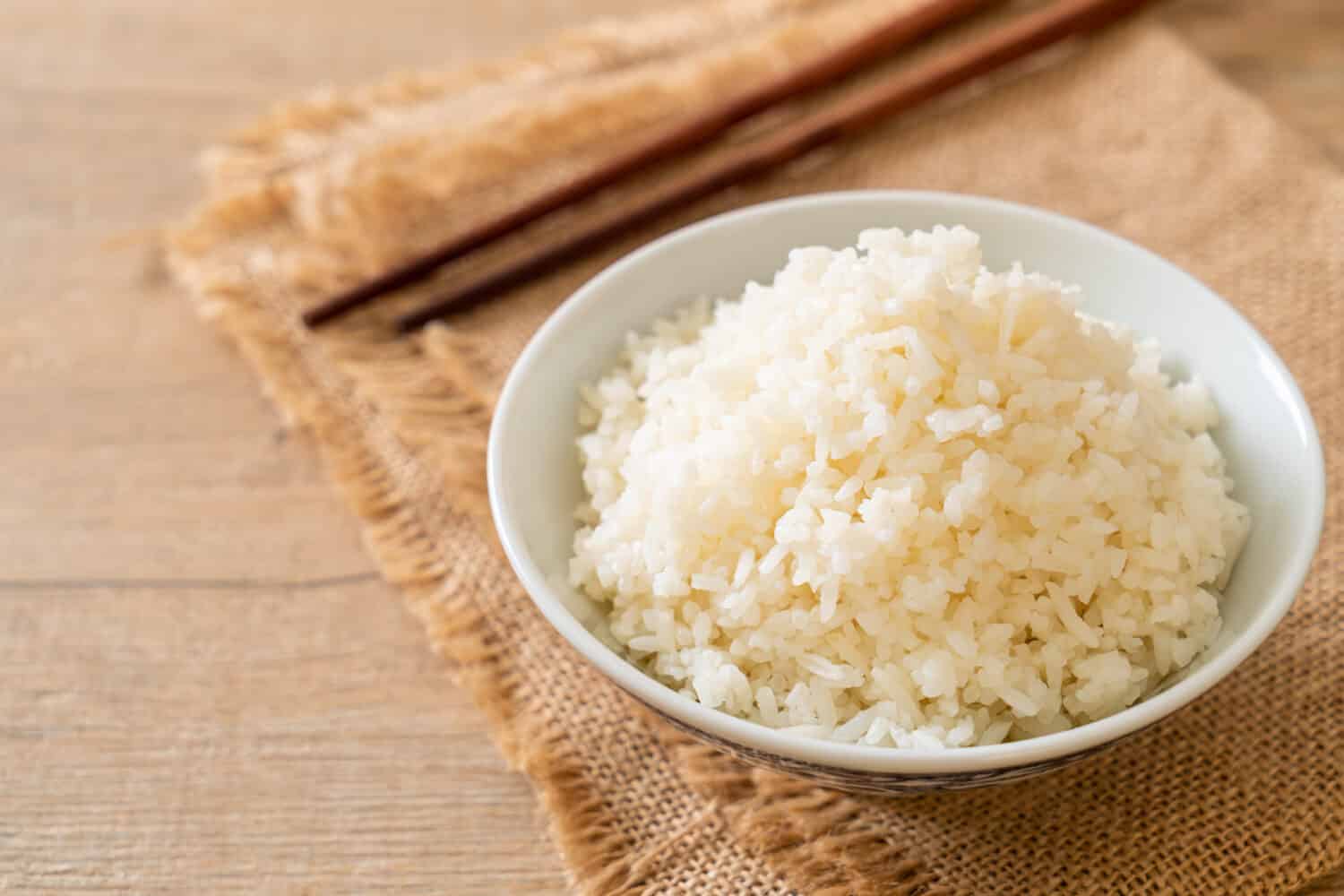When it comes to rice, everyone is familiar with the versatility and adaptability it provides. No doubt rice is a popular dish, easy to make, and affordable for families. However, did you know there are actually over 40,000 types of rice that have been cultivated? This number is quite staggering, but when we consider that rice has been around most likely since at least 8,000 B.C., it isn't shocking! One of the more popular types of rice is jasmine rice, which has earned the nickname Thai's fragrant rice. Its name derives from the flower jasmine because the aroma is delightful, much like the flower. Yet, with its popularity, you may wonder: is jasmine rice healthy?
This article will dig deep into the science behind jasmine rice and what it can mean for your overall health.
What is Jasmine Rice?
Jasmine rice comes in a few different varieties. The most popular type is white jasmine rice. However, there is also whole-grain brown jasmine rice and the colors purple, red, and black. Every color comes with its unique nutrient profile. For this article, we will be exploring white jasmine rice and brown jasmine rice.
When you walk down the rice aisle in the grocery store, you will notice that there are three types of grain rice: short, medium, and long. Jasmine rice is a long-grain rice. It has a fluffy texture when cooked and can be a bit sticky. Jasmine rice was first cultivated in Thailand, which still is the biggest exporter of this type of rice. Vietnam is also a significant exporter.

Jasmine rice has a pleasing aroma that adds to the effect of each dish.
©Boonchuay1970/Shutterstock.com
What Are the Health Benefits of Jasmine Rice?
The health benefits of jasmine rice will depend upon the type that one is eating. White rice and whole grain brown rice vary in nutritional value, and the reason comes down to the processing methods. With white rice, much of the grain's nutritional value is stripped when the husk, bran, and germ are removed. However, with whole-grain brown rice, only the husk is removed, leaving plenty of the original nutrients. Therefore, whole-grain brown jasmine rice will carry more nutritional value than white jasmine rice.
Nutritionally, jasmine rice is higher in calories and carbohydrates. Since it does contain plenty of carbohydrates, it is a starchy food. Starchy foods can fill us up faster. However, they may adversely affect our health, and we will get into more of that below.
Jasmine rice does contain folate, which is very good for pregnant women. However, with white jasmine rice, many nutrients are added back in, including folate and iron.
More health benefits of brown jasmine rice include:
- Brown jasmine rice can aid in digestive health because of the fiber content present.
- It may also help with heart and immune health.
- Brown jasmine rice also contains manganese, phosphorus, vitamins B6 and B1, selenium, and magnesium.
- This type may also have phytonutrients. These are antioxidants that aid our bodies in protecting damage from being done to our cells.
Benefits of eating jasmine rice may also include:
- The aroma is very pleasing, which makes it pleasant to cook.
- Jasmine rice has an adaptable and versatile effect mainly due to its mild flavor and texture.
- It may also contain zinc, copper, and magnesium. However, these nutrients are in minimal amounts.
What Are the Downfalls of Jasmine Rice?
The drawbacks to eating jasmine rice depend on the type you consume. For starters, if you choose white jasmine rice, it undergoes high processing. This processing strips the rice of its nutrient value and gives minimal nutrients in return, although some nutrients are put back in.
Additionally, jasmine rice is low in calcium and iron, and white jasmine rice is low in fiber and protein.
Since jasmine rice is high in carbohydrates, there is a risk of having high blood sugar spikes. It can increase glucose levels, which can adversely affect our health. This can increase the risk of type 2 diabetes. Additionally, carbohydrates can adversely affect heart health and make it challenging to maintain a healthy weight if not eaten in moderation.
Another risk of eating any rice is the possibility that it contains arsenic, especially brown rice. The toxic substance may raise the risk of cancer. Therefore, it is essential to monitor the levels of rice one consumes.

Jasmine rice can have health benefits. However, the overall health profile of the rice will depend on which type you choose, whole-grain or white.
©Zb89V/Shutterstock.com
Rice Dishes to Try Today
- Thai Basil Chicken (with Jasmine Rice)
- Garlic Butter Rice
- Yellow Jasmine Rice
- Curried Shrimp and Rice Recipe
- Baked Savory Rice Recipe
So, Is Jasmine Rice Healthy?
Whether or not jasmine rice is healthy depends on the type that one is eating. Brown whole-grain jasmine rice has many benefits, including more nutrients like protein and folate. However, there can be levels of arsenic in the rice that can affect overall health. Additionally, white rice has been stripped of much of its nutritional value.
Since jasmine rice is a carbohydrate, it may also spike blood sugar, adversely affecting our overall health. However, jasmine rice has become quite the staple in many dishes, not surprisingly so. It is versatile, smells delicious, and is easy to make. If you do enjoy eating jasmine rice or any rice at all, they are best to eat in moderation or choose whole grain for the added nutritional benefits.
The image featured at the top of this post is ©gowithstock/Shutterstock.com
